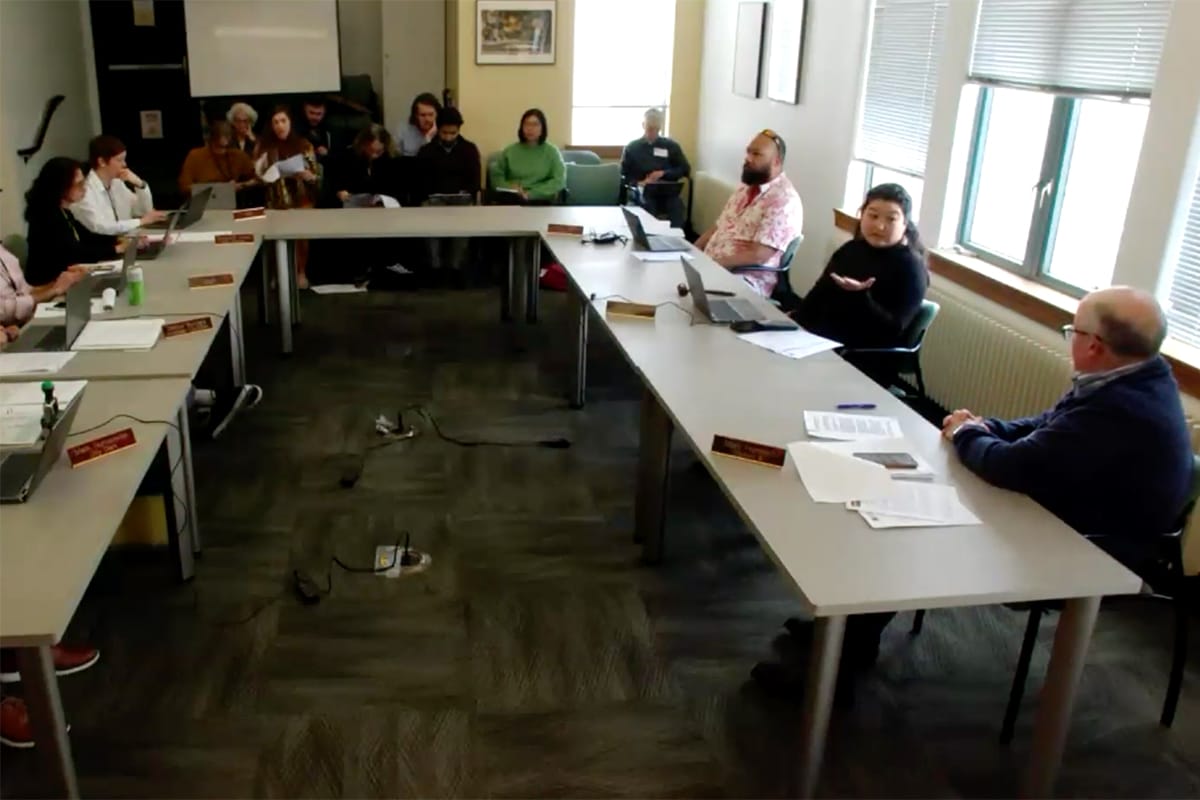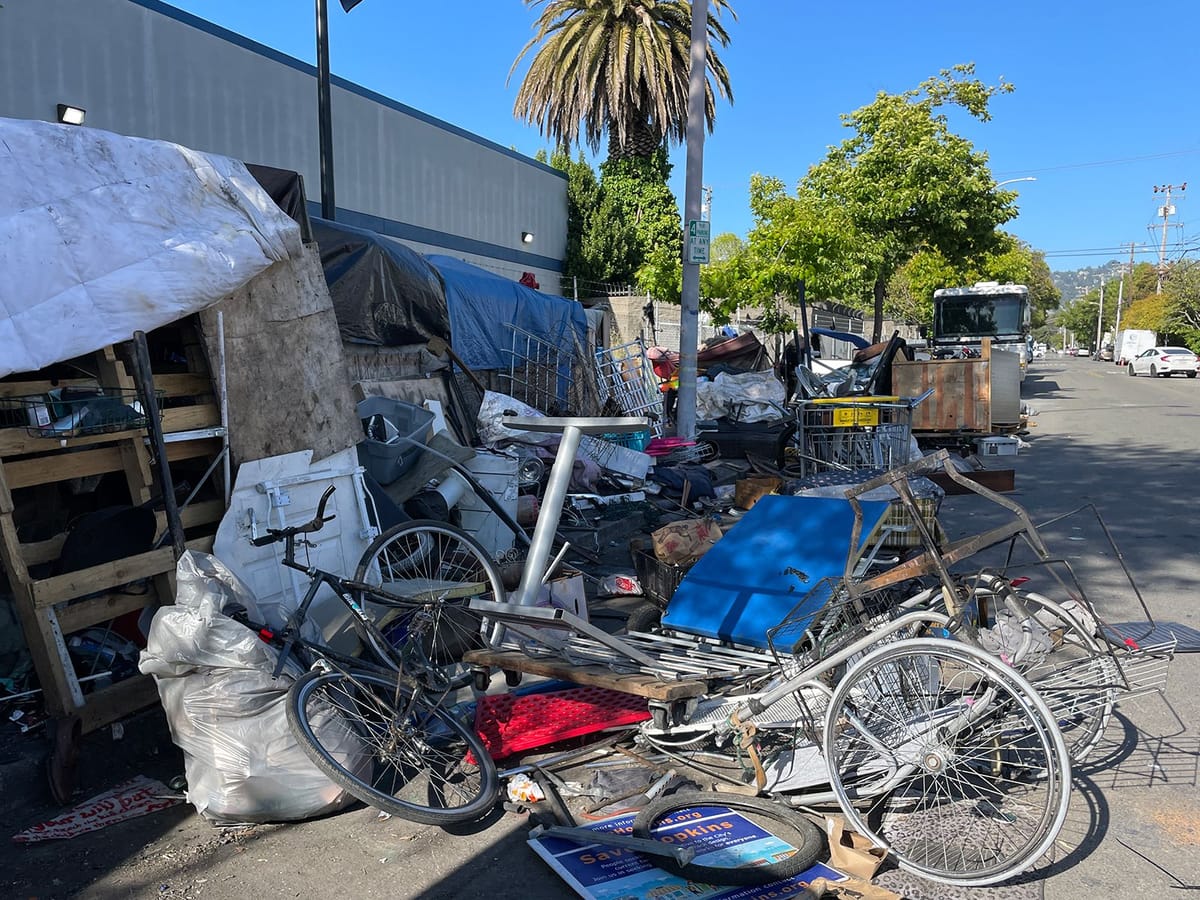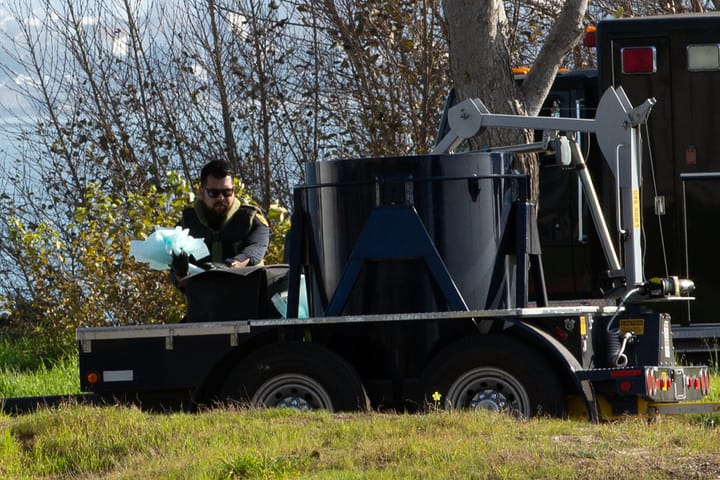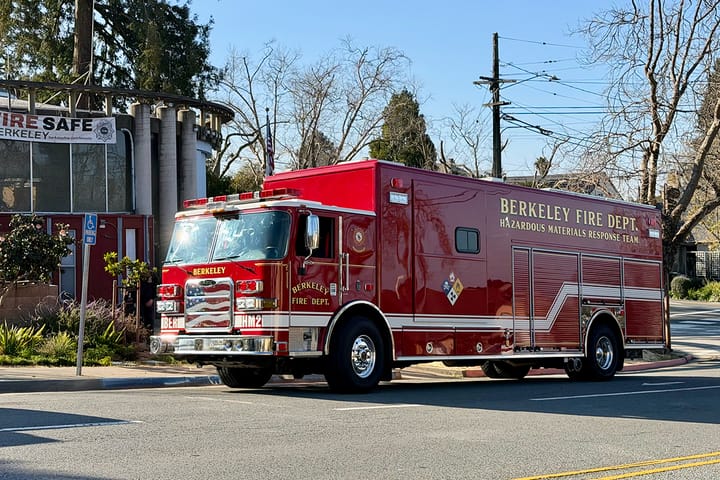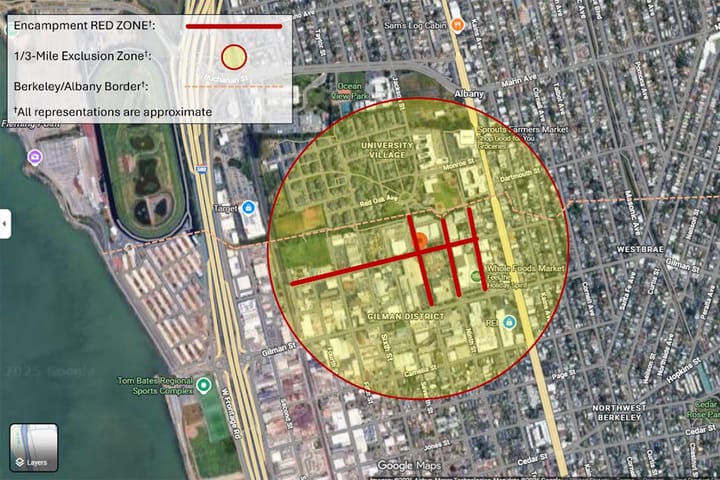A new sanctioned encampment isn't a pipe dream: Op-ed
"Sweeps are expensive, cruel and ultimately useless, merely shifting the rousted population to elsewhere in Berkeley," Amber Whitson argues.
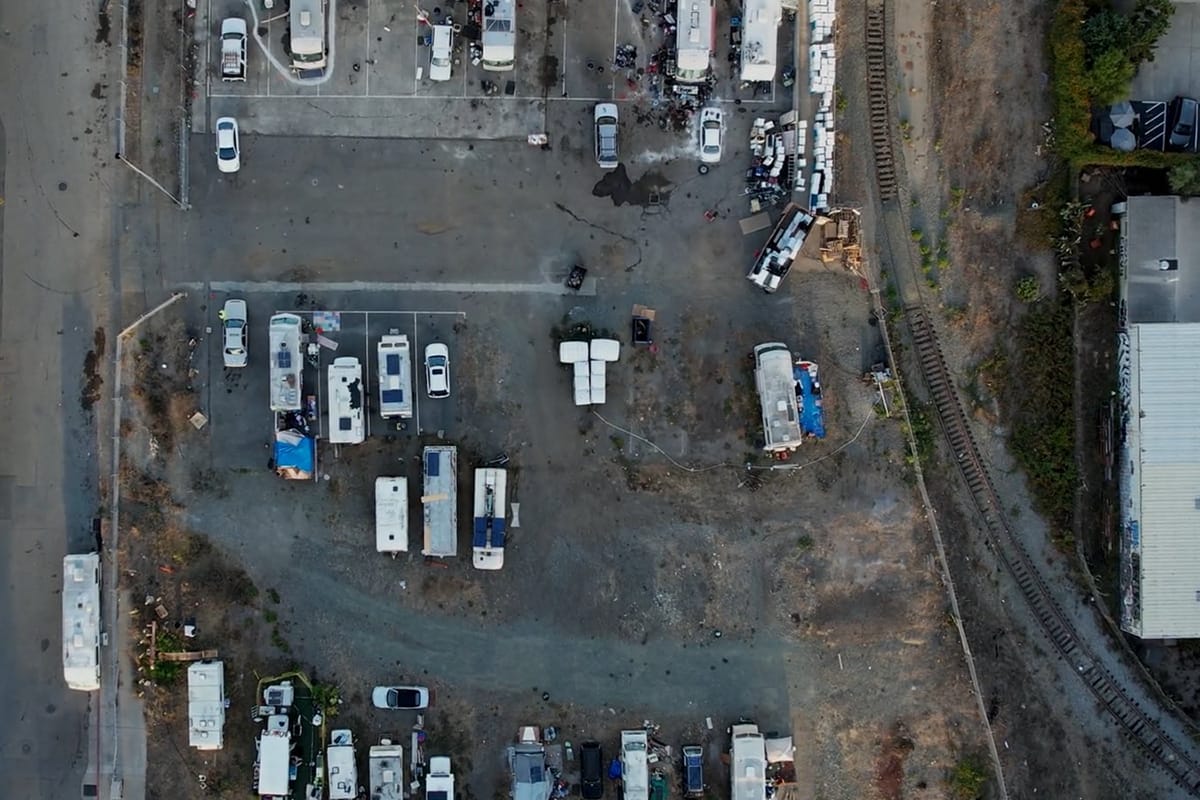
Editor's Note: The Scanner will periodically publish guest essays from community members on issues of concern. Today's piece was written by Amber Whitson, an activist, advocate, dog mom and survivor who has lived in Berkeley and Albany for the past 28 years.
In November 2021, I accepted the city of Berkeley’s offer to move my RV into the Safe Parking And Respite Kickstart (SPARK) lot at 742 Grayson St.
The program didn’t offer much — some portable toilets, a couple of water spigots and a $1,500 "Road Readiness" fund to help residents repair or register their vehicles.
But for people living in RVs on the street, even these basic resources were life-changing.
The only screening the city did was basic outreach by a couple of workers who offered spots to RV dwellers around town. Those who took the city up on that offer moved into the lot until all 40 spaces were full.
Within the first few months of operation, a handful of people got themselves kicked out of the program, due to repeated or severe violations of the rules. As those spaces opened up, other people who had been identified during the initial outreach period moved in.
One of the best things about the people who ended up living on the lot for a majority of the program period was that pretty much everyone got along. Some of us formed lasting friendships.
If Alameda County's Coordinated Entry System had been used to determine SPARK program participants, I doubt the community would have been so harmonious.
But, between the fact that all the residents were pulled from the streets of Berkeley and what I can only guess was luck, we ended up with a generally great community.
To this day, I am unsure what the exact job titles were of the people who were hired by Dorothy Day House to staff the lot. We residents referred to them as security.
Even though they never had to perform any bouncer-like duties, they did perform one of the more essential tasks of any security guard anywhere — they kept destructive and disruptive individuals from entering the lot, which kept the place undeniably safer, due largely to their knowledge of who was safe based on information from residents.
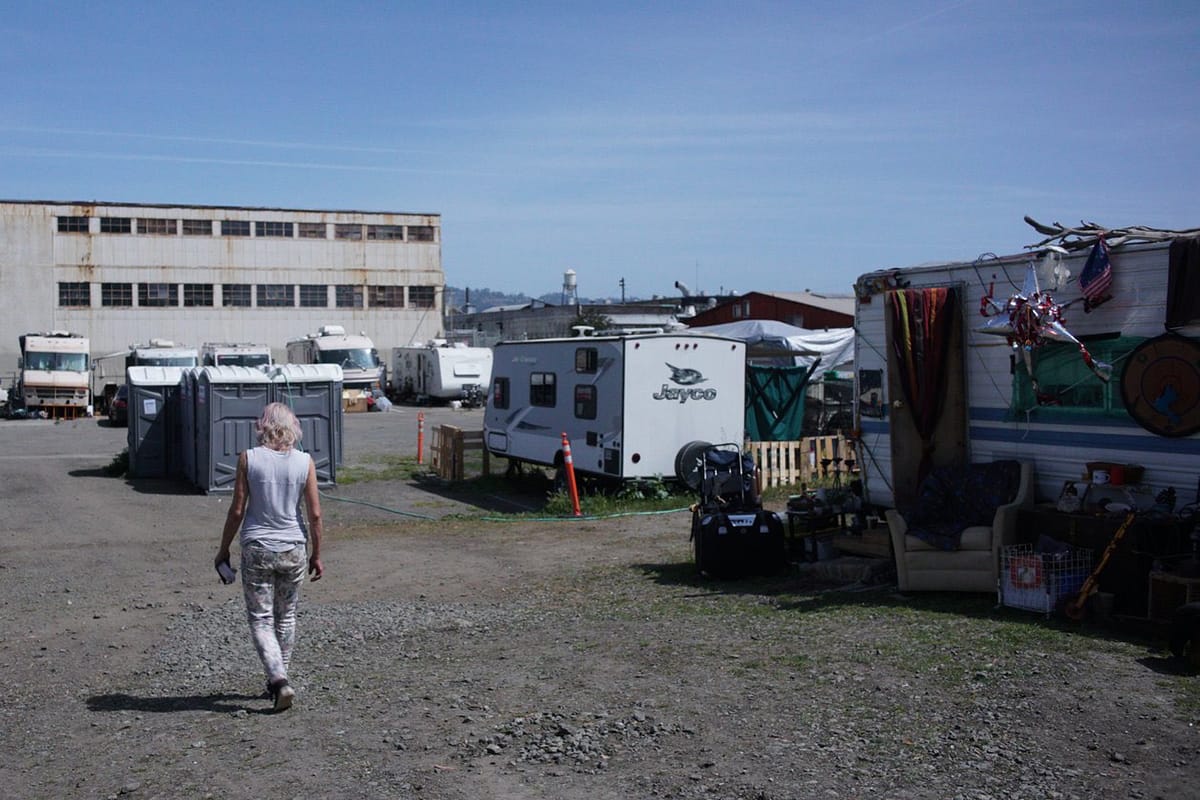
Many of us who lived in the lot had jobs. For us, SPARK was the first time in years we could go to work without wondering if we were going to get home to find that our home had been red-tagged, cited or impounded.
For once, residents could relax at home — we could wash dishes, take out the trash, spend time working on our homes without judgment or harassment: the kinds of everyday freedoms traditionally housed people take for granted.
The worst thing about the SPARK program was how short-lived it was.
For people who have lived on the streets for many years, the level of trauma they can suffer from can be deep. Even as some of us finally began to relax, there was an unshakable sense of impending doom as the program's end approached.
And, although some people who were participants in the Horizon program — located in the adjacent warehouse — were eventually connected to permanent housing, housing assessments weren’t conducted on those of us at SPARK until a month before our program was due to end — a squandered opportunity.
If the city takes the initiative to open another sanctioned encampment and has housing readiness assessments done on program participants early on, we absolutely will see yet more of the unsheltered individuals — who have been living in this city for years — finally transitioning into traditional housing and off the streets.
Sweeps are expensive, cruel and ultimately useless, merely shifting the rousted population to elsewhere in Berkeley. Sweeps waste taxpayer money for no lasting benefit.
In contrast, sanctioned encampments are significantly more cost-effective.
Research indicates that operating a tent city can cost as little as $30-$60 per person per month, whereas traditional shelter options range from $1,634 to $2,308 per person per month.
Moreover, sweeps often entail substantial expenses, including law enforcement, sanitation and administrative costs, without delivering long-term solutions.
Investing in sanctioned encampments not only reduces these recurring costs but also facilitates stable environments where residents can access services and transition to permanent housing.
Opening another sanctioned encampment like the SPARK lot isn't a pipe dream. It's a proven path forward.
The only real question is whether Berkeley’s leaders have the backbone to prioritize real solutions over sweeps — and action over hesitation and excuses.
The Scanner will periodically publish guest essays from community members on issues of interest or concern. Authors who are not already TBS members will receive a complimentary membership in return. Submit your ideas to TBS.
Related coverage
